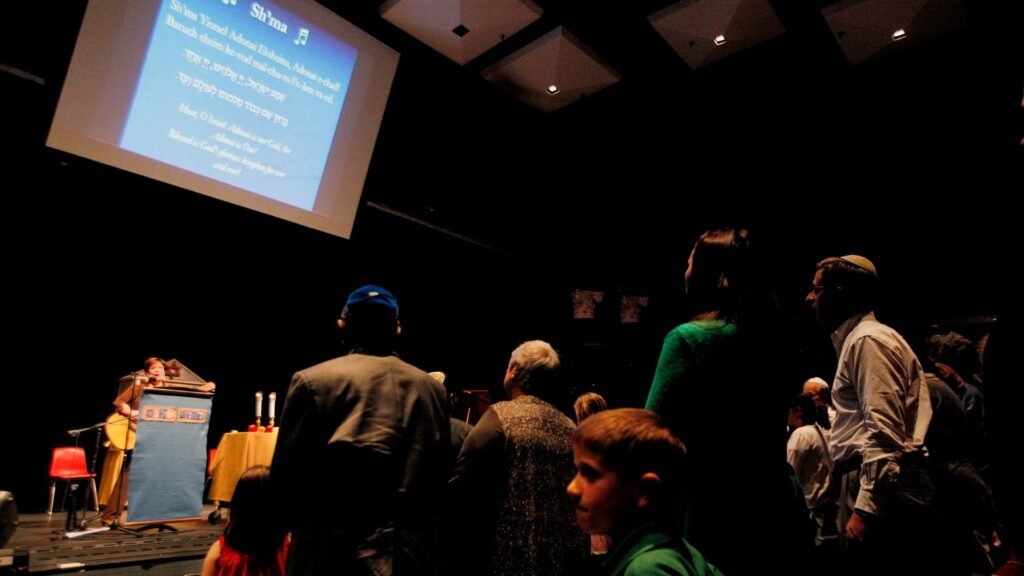Technology has increasingly intertwined with various aspects of life, including religious practices. In modern Jewish rituals, technology plays a significant role, enhancing traditional observances while addressing contemporary needs. Here’s an exploration of how technology is shaping and transforming Jewish rituals.

Virtual Synagogues and Online Minyans
One of the most notable impacts of technology on Jewish rituals is the advent of virtual synagogues and online minyans. Virtual synagogues provide a platform for remote worship, enabling individuals who may be unable to attend in person to participate in services, prayers, and study sessions. Online minyans, which are required for communal prayer, allow Jews to join together digitally to fulfill the quorum necessary for certain prayers. This innovation has made it possible for people to maintain their religious practices even when physical gatherings are not feasible.
Digital Siddurim and Prayer Apps
Digital siddurim (prayer books) and prayer apps have revolutionized how Jews access their prayers and liturgical texts. These apps offer electronic versions of traditional prayer books, complete with translations, commentaries, and audio features. Users can easily navigate through prayers, access additional resources, and adjust the settings to suit their personal preferences. These tools make it more convenient for individuals to engage in daily prayers and observe religious obligations, especially when away from home or traveling.
Online Torah Study and Learning Resources
Technology has significantly expanded access to Torah study and Jewish educational resources. Online platforms, such as virtual classrooms, webinars, and educational websites, provide opportunities for Jewish learning that were previously less accessible. These resources include recorded lectures, interactive classes, and digital texts, allowing individuals to study Jewish law, philosophy, and history from anywhere in the world. This accessibility supports lifelong learning and engagement with Jewish tradition.
Digital Kosher Certification
The process of ensuring food meets kosher standards has been enhanced by technology through digital kosher certification. Apps and websites provide up-to-date information on kosher products, restaurants, and certifications. These platforms allow users to easily verify the kosher status of food items and dining options, simplifying the observance of dietary laws. Additionally, some companies use blockchain technology to track and verify the kosher status of products throughout the supply chain.
Smart Mezuzahs and Ritual Objects
Smart mezuzahs, which are affixed to doorposts in Jewish homes, exemplify how technology is integrated into ritual objects. These devices can include digital components that provide information about the mezuzah’s contents, such as the text of the scroll, and offer alerts or notifications related to its observance. Other ritual objects, like electronic menorahs for Hanukkah, incorporate technology to enhance the celebration and facilitate observance.
Online Jewish Communities and Social Media
Online Jewish communities and social media platforms provide spaces for sharing experiences, discussing rituals, and connecting with others who share similar beliefs. Social media groups, forums, and community pages enable individuals to engage in discussions about Jewish practices, seek advice, and celebrate rituals together, even from a distance. These platforms help maintain a sense of community and support among Jews globally.
Challenges and Considerations
While technology offers numerous benefits for modern Jewish rituals, it also presents challenges and considerations. Ensuring that technological solutions align with traditional practices and halachic (Jewish legal) requirements is crucial. Additionally, maintaining the sanctity and focus of rituals in a digital context requires careful thought and adaptation. Religious leaders and communities must navigate these challenges thoughtfully to preserve the integrity of Jewish practices.
Conclusion
Technology has significantly influenced modern Jewish rituals, providing innovative solutions that enhance religious observance and accessibility. Virtual synagogues, digital prayer books, online learning resources, and smart ritual objects exemplify how technology can support and enrich Jewish practices. As technology continues to evolve, it will likely offer new opportunities for connecting with tradition and engaging in religious life, while also presenting challenges that require careful consideration.




